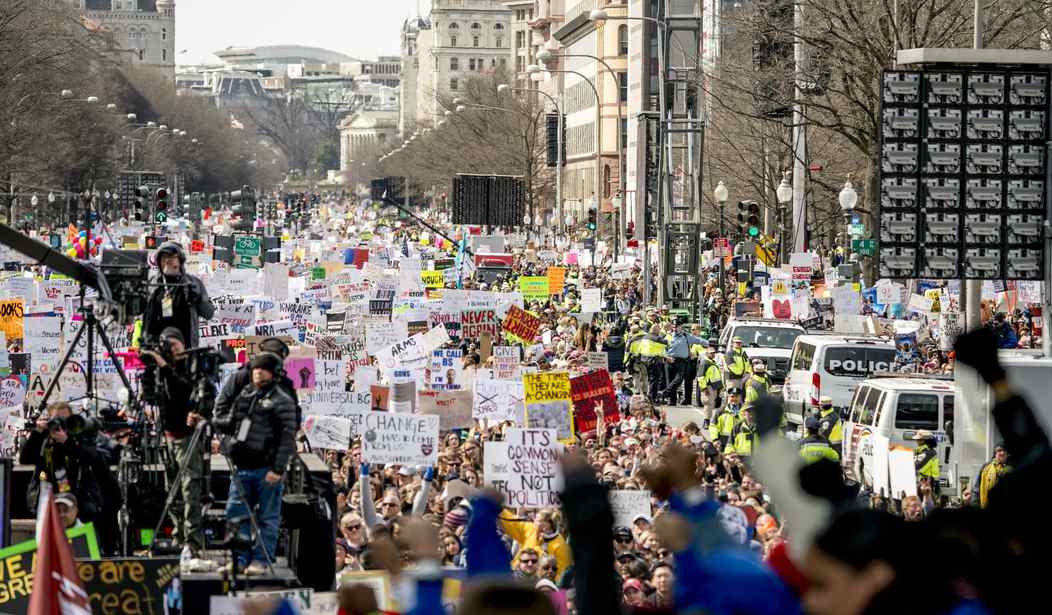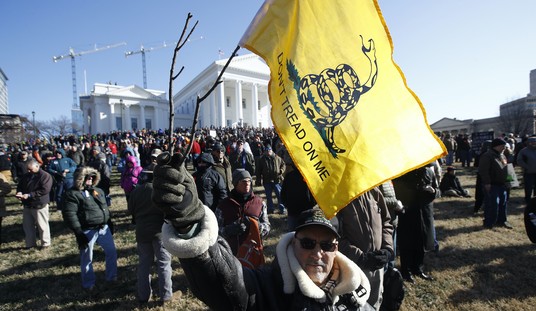Immediately after Parkland, the media heralded the young as the way forward on gun control. Led by people like David Hogg, the youth vote was going to push guns front and center. They were going to hold politicians accountable and all that crap.
However, the media ignored some very real problems with that statement. For one, the youth vote only accounts for a fairly small percentage of the entire electorate. While high school students may be passionate, most of them can’t vote and are thus easily ignored by politicians and the population as a whole. Of students in high school and college who can vote, most of them don’t.
The youth vote isn’t necessarily something to count on. Especially since they can also be distracted by other issues.
But now, with the country swept up in protests over racial justice driven largely by young people, the youthful voices that propelled a movement just two years ago find themselves less squarely focused on issues around gun violence. Polls show that racial justice, the coronavirus pandemic and the related economic downturn far outpace guns as top issues of concern for young people. When asked about gun control measures, it is in fact the oldest Americans who now most often express support, according to some polls.
The activists who organized after the Parkland shooting say they have built up their organizing capacity since then, and they remain committed to making at least as significant a difference in 2020 as they did in 2018. But this year, they say, a big part of that will mean building solidarity with organizers confronting racial injustice.
“For us, we recognize how gun violence is such an intersectional issue,” said Kelly Choi, 20, a member of the executive board at March for Our Lives, the national nonprofit that grew out of the Parkland students’ organizing. “Gun violence is the symptom of other things, like poverty, racism, housing insecurity, domestic violence.”
I’d just like to point out that if all of those issues play a factor in “gun violence,” then they play a bigger factor than the guns themselves. After all, we know there’s less of such violence in places where the gun ownership rate on a per capita basis is significantly higher.
In other words, the anti-gun youth are still anti-gun, of course, but many of their peers–the people who backed them on guns but weren’t the hardline anti-gunners–have moved on to other issues.
And this is how it usually plays out for the gun grabbers, thankfully. They build up a huge amount of support in the aftermath of a horrible event, but then they fizzle out somewhere along the line. Often, the problem is that people come to recognize that the gun control being pushed won’t actually solve the problems.
Then there’s the “shiny object” effect. That’s not unique to young people, either. The “shiny object” effect is basically a case where people are all about the topic du jour until another topic rolls around. This isn’t unique to one side or another, of course, but is something we see everywhere. In this case, the “shiny object” is so-called racial injustice. It’s now pulling attention away from guns.
Now, don’t get me wrong. Most of these people are still anti-gun. It’s just not a driving force for them anymore.
That means a savvy politician can address racial injustice and win without ever having to say a thing about restricting gun rights. It also means people on either side of the aisle can step up and garner those votes if they’re clever about it.
I can’t help but believe that’s going to chafe the usual suspects something fierce.







Join the conversation as a VIP Member